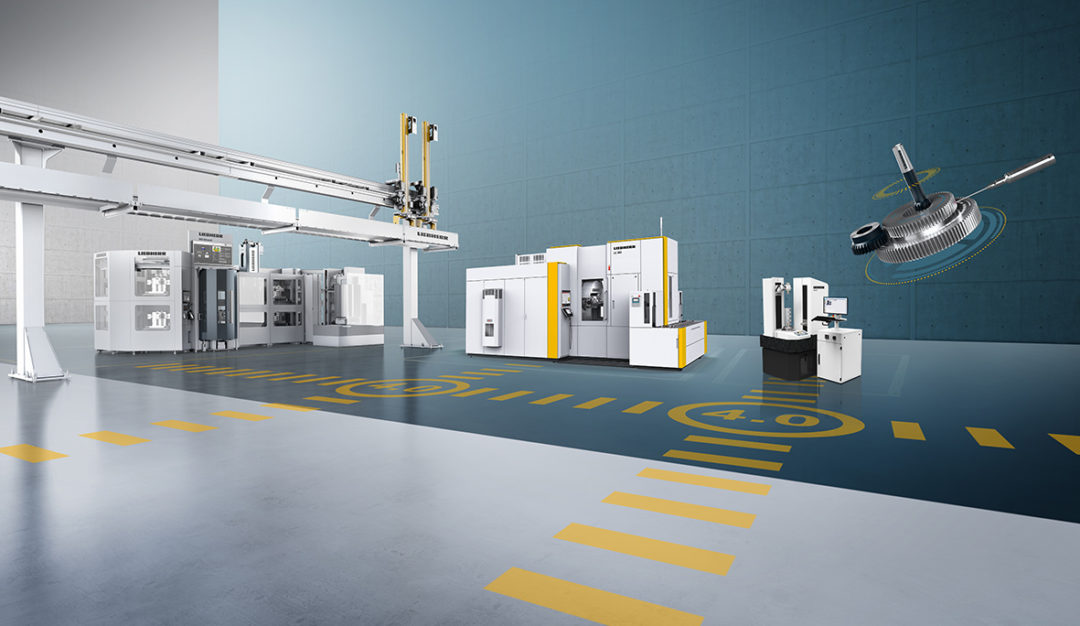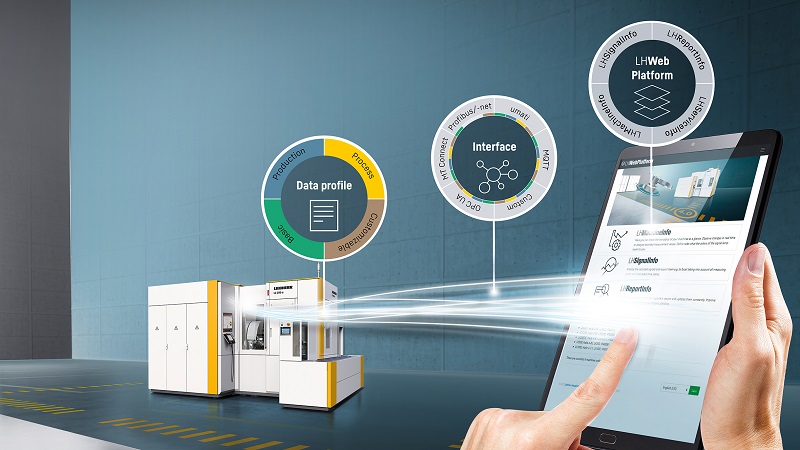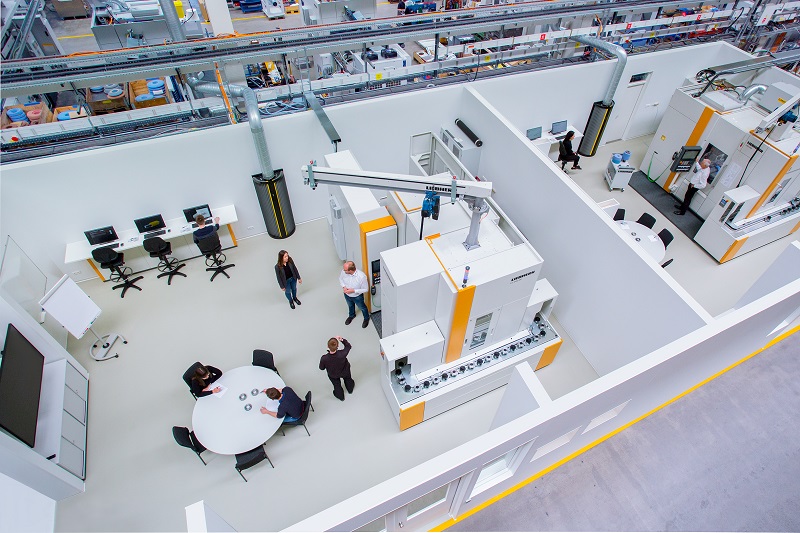
State of the Gear Industry Perspectives: Liebherr
State of the Gear Industry Perspectives takes an in-depth look at the challenges and opportunities in gear manufacturing today and in the future. Our third installment online is an interview with Peter Wiedemann, managing director, Liebherr-Verzahntechnik GmbH and Scott Yoders, vice president sales, Liebherr Gear Technology, Inc.
 Peter Wiedemann
Peter Wiedemann
 Scott Yoders
Scott YodersWhat are the greatest challenges to your business in 2023?
Supply chain shortages, leading to extended delivery times for our gear machine tools, and automation products. Furthermore, a skilled labor shortage means customers have invested heavily in our gear machine and automation systems in recent years, which makes the demand for our products equally high, also contributing to extended delivery times. The considerable increase of energy cost couldn’t be predicted and will be difficult to compensate.
What global manufacturing trends are you paying close attention to in the gear industry today?
There has been an increasing demand for our automation products, in conjunction with our gear machine offerings. For sure, even job-shop customers – as well as customers in low-cost labor countries – who did not in the past consider automation, are more-interested than ever. This is most-likely due to the overall global skilled labor shortage in manufacturing. For this reason, a close collaboration with our customers not only includes an automated system, but also the proper training and smart-factory solutions like Industry 4.0, to get started with these turn-key solutions from the onset of a new installation.
What is the state of your business regarding training and developing your skilled workforce internally and the state of finding skilled workers to join the organization?
Liebherr has invested heavily in our Training Center in Kempten, Germany, to formally train operators, technicians, as well as mechanical and electrical maintenance personnel, with both in-person and online formats. Our well-known apprenticeship program helps attracting talent – we are constantly adjusting the training content to the current and future needs.
How is your organization evolving when it comes to emerging technologies such as IIoT, additive manufacturing, electrification, etc.?
Extensive data is the key to optimizing production processes, and we from Liebherr have developed our own solution “LHWebPlatform,” for the various levels- of Industry 4.0 that our diverse set of customers have a need.
Our modular platform for digitization includes LHWebplatform, with live status of machine tools, as well a LHSignalInfo to visualize machine signals, and LHReportInfo for customizable analyses and reports of machine and process data. Please visit our website for a live demo of the LHWebPlatform in action! Here you can see our new App for networked production, in a factory setting.
 LHWebplatform from Liebherr.
LHWebplatform from Liebherr.In terms of e-mobility, not only do we provide gear machine, automation, and inspection solutions for hobbing, shaping, skiving, and gear grinding – for the highest level of quality requirements in automotive, but also the innovative automation solutions for battery pack and cell assembly.
What role is sustainability and green manufacturing playing in your organization in 2023?
Since 1993, as the inventor of dry-hobbing, Liebherr has been a leader in the development of sustainability and eco-friendly production in the gear industry. Furthermore, one of our core values as a company is to accept responsibility for the impact we have on the environment. We aim at all times to fulfil our responsibility to society in general and to the environment. As a family-owned company active throughout the world, we carry considerable responsibility for society and the environment. We are convinced that we shall only achieve long-term success if we remain aware of this responsibility in all our activities. Protection of humanity and the environment is of special importance in our business activities. It means that our products and the processes used to manufacture them must be safe, efficient and environmentally acceptable.
Describe the role automation/robotics plays in your business today and how these technologies will evolve in the coming years?
Well for Liebherr Gear Technology, the role of automation is not something new “today,” or something which will be new in “evolving years.” You see we have supplied our own automation – including robotics and other automated systems – for our gear machines since the early 1980s. Part of our division of Liebherr has been automating complete factories, and building our own gantry systems, palletizers, and providing robotic integration since the 1970s in fact. As mentioned earlier though, we see these automated solutions moving from their traditional gear-cutting markets like automotive and truck, into other areas like aerospace, construction, ag, and even larger gear cutting applications like wind-power, oil & gas, as well as mining products. We even have interest from some small job-shop customers for automation of even small batch sizes. Perhaps the skilled labor shortage has an impact, but also the need for consistent quality and the newer flexible automation systems is leading to this revolution in gear manufacturing. Fortunately for Liebherr, this plays directly to our skillset as not just a gear technology company, but a worldwide leader in automation systems as well.
 Liebherr Training Center in Kempten, Germany.
Liebherr Training Center in Kempten, Germany. As gear shopfloors become more data-driven, how will hiring practices change in the gear industry moving forward? Do you believe it’s necessary to bring in system integrators, data engineers, and mechatronics experts to diversify your workforce?
As mentioned previously, we totally believe it’s necessary to help the introduction of these new skillsets in the gear machining workforce. For that very reason, Liebherr has invested heavily in our Training Center in Kempten, Germany, to formally train operators, technicians, as well mechanical and electrical maintenance personnel, with both in-person and online formats. Here we can bring a diverse set of skills – young and old, computer-friendly and hands-on alike – to the level required to operate a modern gear manufacturing cell. We took a leadership role for this trend some years ago, and now it’s paying dividends.
How will the gear industry change and evolve in the next five years?
The gear industry will clearly have an increased level of automation, the world-over in the next 5 years, and for sure the data-driven Industry 4.0 will have a profound impact on machine tool digitization, for which our LHWebPlatform is perfectly suited. We also see a trend toward larger gear cutting demand, owing to a worldwide energy crisis developing since the past 1.5 years (wind, oil, gas). Furthermore, the electrification trend will see increased demand in our high-end gear machining solutions like Hobbing with ChamferCut and DFT Gear Grinding. We see this automotive segment continuing to increase the demand for sophisticated solutions...not just tooling and clamping, and automation, but also the software, mathematics, and know-how for the topological modifications required for noise reduction in gearboxes.
